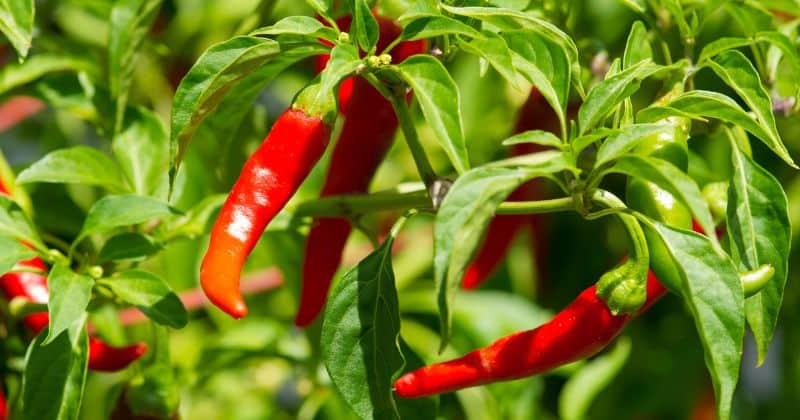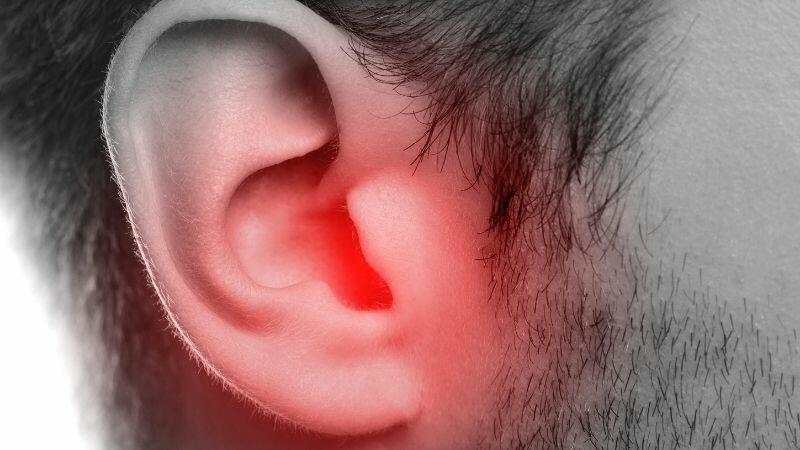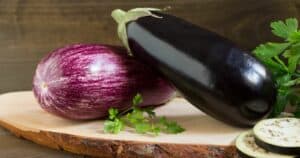If you’ve ever felt a weird burning or stinging sensation in your ears after eating fiery foods, you’re not alone! Many people experience ear pain and discomfort when indulging in spicy cuisine. But what exactly causes this strange reaction between your ears and hot peppers?
The answer lies in a compound called capsaicin. Found in chili peppers and hot sauce, capsaicin triggers irritation and inflammation when it contacts receptors in your mouth and throat. This tricks your brain into thinking you’re literally on fire!
In response, your body kicks into overdrive. Blood vessels expand, fluids build up, and nerves go haywire near your ears as your body tries to cope with the perceived threat. All this leads to referred pain, pressure, and weird tingling around your ears as innocent bystanders.
In short, capsaicin is to blame for the ear pain spicy food often causes. Your ears are just caught in the crossfire as your body springs into action against the fiery intruder in your mouth.
Read on to learn more about:
- How capsaicin causes ear-related symptoms
- Why your ears burn and feel clogged after spicy meals
- Whether hot foods can treat ear infections
- Tips to prevent discomfort when you
spice up your dishes - When to see a doctor about persistent ear problems
With a little knowledge, you can keep satisfying your spicy food cravings without the unpleasant side effects!
The Spicy Food and Ear Pain Connection
When you eat spicy dishes containing chili peppers or hot sauce, you’re consuming a compound called capsaicin. Found in many popular peppers, capsaicin binds to pain receptors in your mouth and throat, triggering that intense burning “heat” we associate with spicy food.
In response to this chemical irritation, your body springs into action in an attempt to cool itself down. Blood vessels near your ears dilate and fluid builds up in the tubes connecting your throat and ears (known as the Eustachian tubes). This causes pressure and discomfort, making your ears feel like they’re burning up!
So in essence, the capsaicin in spicy food inflames nerves and alters circulation around your ears, leading to pain. It’s your body’s physical response to the false fire alarm going off in your mouth. Luckily, the symptoms are temporary for most people.
Why Do My Ears Burn When I Eat Spicy Food?
Here are some of the common ear sensations you may experience after eating fiery dishes:
- Burning or stinging inside the ears
- Sharp earache similar to an ear infection
- Feeling of fullness or pressure in the ears
- Muffled hearing or brief deafness
- Popping or cracking sounds in the ears
These occur thanks to capsaicin dilating blood vessels near your ear canals and drum. More blood rushing to the area stretches tissues and puts pressure on your inner ear.
Extra fluid also gets produced, obstructing the Eustachian tubes that keep air pressure stable between your nose and ears. The imbalance makes your eardrums vibrate painfully.
Luckily, the discomfort is often fleeting, subsiding within minutes or hours as your circulation stabilizes. But it can be alarming if you’ve never felt the spicy food ear burn before!
Does Spicy Food Help Ear Infections?
Some people think eating spicy food can actually help cure an ear infection thanks to capsaicin’s anti-inflammatory effects. However, research doesn’t support this.
While capsaicin does have antimicrobial properties, the amount reaching your infected ear by eating hot sauce is negligible. The capsaicin dilution and absorption by your digestive system prevent a strong enough concentration from reaching your infection when ingested.
So it’s unlikely hot foods can cure ear infections or earaches. Symptom relief is probably just due to the distraction of the burning mouth and throat!
In some cases, spicy food may even worsen infection symptoms by increasing inflammation. It’s best to avoid hot spices when fighting ear issues and stick to your doctor’s treatment plan.
When I Eat Spicy Food I Feel It In My Ears – Why?
Thanks to the intricate connection between your ears, nose, mouth, and throat, what affects taste buds on your tongue also impacts areas like your Eustachian tubes and inner ears.
Nerve endings detecting
This referred pain and shared nerve connection is why your ears might sting, burn, or throb in reaction to oral
Plus, all those fluid changes and circulatory effects from capsaicin happen close to the ears, explaining the pressure and odd sensations. Your ears are innocent bystanders feeling the
Blocked Ears After Eating Spicy Food – What Gives?
Ever had your ears pop, crackle, or feel plugged up after a mouth-searing meal? It’s another side effect of capsaicin triggering fluid changes in your head.
Here’s what happens:
- Capsaicin incites inflammation in your nasal and throat tissues. Your body responds by producing extra mucus to protect these irritated areas.
- Excess mucus drips down the back of your throat and accumulates in your Eustachian tubes (which connect your throat to middle ears).
- The clogged tubes prevent normal air pressure regulation between the nose and ears. This makes your eardrums vibrate oddly, causing a blocked ear sensation.
Luckily, the stuffiness is temporary. Once your mucus production calms down after the hot meal, the blockage clears up. Just be patient and sip fluids to thin mucus while your ears recover.
Chowing Down on Chili Peppers

Not all spicy dishes affect ears equally. Foods containing actual chili peppers tend to provoke the most intense ear-related symptoms compared to foods that merely have diluted hot sauce or seasonings.
The reason comes down to capsaicin concentration. Chili peppers contain the highest natural amounts of capsaicin compared to other pepper varieties. The hottest chili pepper cultivars like habanero or ghost chilies contain up to 1,000 times more capsaicin than a jalapeno!
When you eat an actual raw or cooked chili pepper, you are getting a major dose of concentrated capsaicin directly. This allows much more to reach pain receptors in the mouth and throat and spark inflammatory effects.
In contrast, spicy prepared foods like buffalo wings, chili, or hot salsa contain diluted forms of chili pepper in sauces. The capsaicin level is reduced.
While these foods can still trigger some ear effects, especially in those with low
So true chili pepper purists should expect more intense ear burning, pressure, or ache when indulging in their favorite fiery pods. Moderation is key if you want to minimize discomfort, or try less-spicy pepper varieties to build up your tolerance.
But for most, avoiding straight chili peppers is enough – tasty spicy sauces and seasonings usually only cause mild temporary ear effects for most people. Saving the raw chilies for chili pepper eating contests is a wise choice!
Tips to Prevent Spicy Food Ear Pain
If you want to keep enjoying fiery foods without the unpleasant ear side effects, try these tips:
- Drink plenty of fluids during and after eating spicy dishes to prevent dehydration and thin excess mucus.
- Add a dairy garnish like yogurt or sour cream to help tame the heat. Casein in dairy binds to capsaicin.
- Avoid hot spices within a few hours of bedtime, when you can’t sip fluids to stay hydrated.
- Start with milder spices and work your way up to higher heat levels to build tolerance over time.
- Take an over-the-counter oral decongestant to reduce inflammation in ears and nasal passages after eating spicy cuisine.
- Use OTC pain relievers like ibuprofen or acetaminophen to alleviate discomfort in irritated ears.
- See an ENT doctor if ear pain persists longer than 12-24 hours after a spicy meal.
When To Worry About Spicy Food Ear Pain
In most cases, the ear pain caused by spicy food is mild, temporary and harmless. But see a doctor promptly if you experience:
- Intense or unbearable ear pain after eating hot foods
- Hearing loss or muffled ears lasting over one hour
- Vomiting, dizziness or other concerning symptoms along with ear discomfort
- Fever over 101°F (38°C)
- Persistent pain over 24 hours after consuming spicy food
These may indicate a true ear infection or other medical issue unrelated to
Spicy Food and TMJ Disorders
An often overlooked contributor to ear pain when eating spicy food is Temporomandibular Joint Dysfunction (TMJD or TMD). The temporomandibular joint connects your jawbone to your skull. TMJD arises from problems with this joint and surrounding muscles.
TMJD leads to pain, stiffness, and reduced mobility in the jaw. It can also contribute to referral pain in nearby areas like the ears and neck due to inflamed nerves.
How does this connect to spicy food? Chewing with your mouth on fire from chili peppers or hot sauce can worsen TMJD symptoms. The exaggerated motion of chewing while trying to cope with intense
Referred pain signals from the irritated joint and muscles then radiate up to the ears, causing a burning or stabbing sensation. TMJD essentially amplifies the preexisting ear effects from capsaicin.
Those prone to TMJ issues may benefit from avoiding their spiciest triggers. Soft foods are easier to chew comfortably. TMJD treatment like occlusal splints, physical therapy, pain medication, or surgery can also help minimize flare-ups.
Pay attention if ear pain persists long after a spicy meal – it may be your TMJ acting up. Seeking prompt treatment can nip TMJD-related discomfort in the bud so you can keep enjoying your favorite fiery dishes.
The Takeaway
The tingling, burning or throbbing in your ears after a mouth-searing meal can be unpleasant. But in general, it’s a harmless reaction as your ears get caught up in your body’s response to capsaicin heat. Stay hydrated, pace yourself





